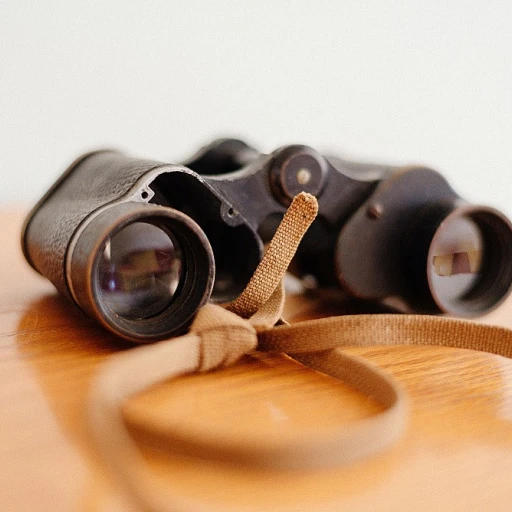Understanding the Role of a Director
The Strategic Importance of the Director Position
Understanding the complexities and nuances of a director's role is crucial in effectively navigating the interview process. Directors hold a pivotal position within any organization, acting as a bridge between the executive team and the many departments that drive a company's success. Their leadership skills, strategic vision, and ability to execute plans play a fundamental role in long-term growth and stability. Candidates applying for a director position must possess not only exceptional management abilities but also a deep understanding of the company’s goals and values. As part of evaluating a candidate’s fit, it's essential to touch on various aspects that contribute to their capability in steering the organization towards its objectives.- Leadership and Decision-Making Skills: Directors are often required to make high-stakes decisions that impact organizational trajectories. This involves a keen sense of problem solving, strategic foresight, and effective communication skills.
- Cultural Fit and Values Alignment: Ensuring that a candidate aligns with the organization's culture and values is vital. Successful directors are those who can integrate seamlessly with the existing team while steering the company towards its strategic goals.
- Technical and Industry-Specific Knowledge: Directors often need to possess thorough industry-specific knowledge to ensure their strategies are relevant and impactful. This expertise helps them guide teams and projects efficiently.
Crafting Effective Interview Questions
Designing the Right Questions for Director Interviews
Crafting effective interview questions for a director-level position is crucial for identifying the right candidate who can lead and inspire. This process involves understanding the specific demands of the role and tailoring questions that reveal the candidate's capabilities and potential fit within the organization. Here are some strategies to consider:
- Focus on Leadership and Management Skills: Directors are expected to lead teams and manage projects efficiently. Questions should explore their leadership skills, such as "Can you describe a time when you had to lead a team through a challenging project?" This helps gauge their problem-solving abilities and decision-making skills.
- Assess Communication and Collaboration: Effective communication is vital for a director. Ask about their experience in fostering collaboration among team members, like "How do you ensure effective communication within your team and across departments?" This can reveal their ability to work with diverse teams and maintain open lines of communication.
- Understand Their Vision and Strategic Thinking: Directors should align with the company's long-term goals. Questions like "How do you develop and implement strategic plans that align with organizational objectives?" can provide insights into their strategic thinking and vision for the role.
- Evaluate Cultural Fit and Values Alignment: It’s important to ensure the candidate's values align with the company culture. Ask about their approach to maintaining and enhancing company culture, such as "What values do you prioritize in your work and how do you instill them in your team?"
- Inquire About Industry-Specific Knowledge: Tailor questions to assess their understanding of industry trends and technical knowledge relevant to your organization. For instance, "How do you stay updated with the latest industry trends and incorporate them into your work?"
By crafting questions that delve into these areas, you can better assess whether a candidate is equipped to handle the responsibilities of a director. For more insights on creating an exceptional interview journey for candidates, visit this resource.
Evaluating Leadership and Decision-Making Skills
Assessing Leadership and Decision-Making Aptitude
In director-level interviews, one of the paramount objectives is to effectively gauge the candidate's leadership and decision-making skills. These attributes are essential for driving the organization’s goals and managing dynamic teams. Thus, it is crucial to pose interview questions that delve into a candidate’s ability to lead, make informed decisions, and handle challenges with resilience. One approach is to ask candidates to describe times when they have led their team through significant change or conflict. For instance, "Can you provide an example of a challenging project you managed, how you navigated through the challenges, and the outcome?" Such questions directors ask are designed to extract information about problem-solving and management skills. Additionally, effective communication is indispensable in a director role. It’s worthwhile to inquire about how a candidate ensures open lines of communication with team members and other executive directors. A potential question might be, "How do you ensure effective communication across all levels of your team and other departments?" With such questions, you aim to grasp the candidate's communication strategy and its effectiveness within past roles. Understanding decision making under pressure is another critical area. Ask questions like, "Describe a time when you had to make a tough decision with limited information. What was the outcome?" This encourages the candidate to reflect on their decision-making processes and how they manage under pressure. Inquiring about long-term vision is equally important. By asking, "How do you align your work with the long-term objectives of the company?" you assess how their leadership can contribute to the strategic goals of the organization. In essence, these director interview queries serve to dissect the candidate's core competencies in leadership and decision making. They allow you to observe how potential directors have navigated complex scenarios, which in turn reflects their preparedness to uphold the responsibilities of executive roles. You can find more tailored strategies in understanding the role of pre-screening interviews in the hiring process.Assessing Cultural Fit and Values Alignment
Exploring Cultural Fit and Values
In the complex landscape of director-level roles, assessing a candidate's cultural fit and alignment with the organization's values is crucial. This not only ensures that the director will work harmoniously with the existing team but also that they will drive the company towards its long-term goals.
Understanding the values that your organization cherishes can guide the crafting of interview questions that reveal how well a candidate's personal and professional ethos aligns with those values. Here are some strategies to consider:
- Values Identification: Begin by clearly defining the core values that your company upholds. This will serve as a benchmark during the interview process.
- Behavioral Questions: Use questions that prompt candidates to describe a time when they had to make a decision that tested their values. This can provide insight into their decision-making skills and priorities.
- Scenario-Based Inquiries: Pose scenarios that reflect potential cultural challenges within your organization. Ask candidates how they would handle these situations to gauge their problem-solving skills and adaptability.
- Team Dynamics: Inquire about their experience in managing diverse teams. How do they ensure effective communication and collaboration among team members with varying backgrounds?
Sample answer: When evaluating a candidate's fit, listen for examples that demonstrate their commitment to fostering a positive work environment and their ability to lead by example. Their answers should reflect a genuine understanding of the role's demands and the organization's mission.
Ultimately, the goal is to select a director who not only possesses the necessary leadership skills but also resonates with the company's ethos. This alignment can significantly enhance the team's cohesion and the organization's overall success.
Technical and Industry-Specific Inquiries
Exploring the Technical Competencies and Industry Acumen
When interviewing for director-level roles, assessing a candidate's technical skills and their understanding of the specific industry is crucial. This is where tailored interview questions can provide insights. As you craft these queries, consider what technical competencies are essential for the role and how they align with the long term goals of your organization.- Role-Specific Technical Skills: Ask candidates to describe a time when they successfully managed a project. This helps gauge their project management skills, especially how they tackled problem solving and decision making in complex situations. These insights are important for evaluating their ability to lead in your company's unique context.
- Industry-Specific Knowledge: Use interview questions that probe their understanding of industry trends and challenges. Directors need to ensure their team stays relevant and responsive to changes. Sample questions might include inquiries about emerging technologies or regulations affecting your field.
- Executive-Level Decision Making: Directors often need to make high-stakes decisions. Pose hypothetical scenarios that require problem solving and critical thinking. Sample questions might include "How would you approach a significant shift in our product strategy?" This can reveal their thought process and leadership skills in navigating complex decisions.




